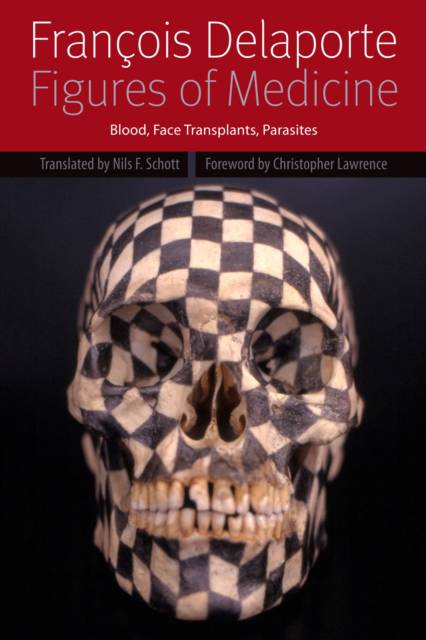
Bedankt voor het vertrouwen het afgelopen jaar! Om jou te bedanken bieden we GRATIS verzending (in België) aan op alles gedurende de hele maand januari.
- Afhalen na 1 uur in een winkel met voorraad
- In januari gratis thuislevering in België
- Ruim aanbod met 7 miljoen producten
Bedankt voor het vertrouwen het afgelopen jaar! Om jou te bedanken bieden we GRATIS verzending (in België) aan op alles gedurende de hele maand januari.
- Afhalen na 1 uur in een winkel met voorraad
- In januari gratis thuislevering in België
- Ruim aanbod met 7 miljoen producten
Zoeken
Omschrijving
What does the infamous face transplant in France in 2005 share with the examination of "swollen faces" in Latin America in the 1930s? What does blood transfusion in Europe during the 17th century have in common with the discovery of mosquitoes as parasitic vectors in China at the close of the 19th century? And, last, how does the reconstruction of noses using skin flaps in Bologna in the 16th century relate to the opening of a forehead cyst in Guatemala in 1916? The six essays that form Figures of Medicine present a wealth of symmetries. François Delaporte shows that each epistemological concern demands its own mode of engagement; problems reside not only in their objects but also in the historical situations in which they emerge. Focusing on efforts to resolve medical problems that are particular and nonetheless exemplary, Delaporte unpacks these separate cases to show how multiple actors--over long periods of time and across different geographies--must be taken into account to remove epistemological blockages that stand in the way of understanding. A remarkable contribution to the history of science and medicine, this book shows the value of historical epistemology from philosophical, historical, and anthropological perspectives.
Specificaties
Betrokkenen
- Auteur(s):
- Vertaler(s):
- Uitgeverij:
Inhoud
- Aantal bladzijden:
- 220
- Taal:
- Engels
- Reeks:
Eigenschappen
- Productcode (EAN):
- 9780823244447
- Verschijningsdatum:
- 25/02/2013
- Uitvoering:
- Hardcover
- Formaat:
- Ongenaaid / garenloos gebonden
- Afmetingen:
- 155 mm x 229 mm
- Gewicht:
- 385 g

Alleen bij Standaard Boekhandel
+ 290 punten op je klantenkaart van Standaard Boekhandel
Beoordelingen
We publiceren alleen reviews die voldoen aan de voorwaarden voor reviews. Bekijk onze voorwaarden voor reviews.









